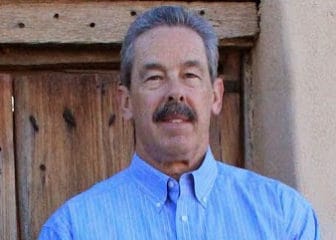COMMENTARY: I’ve got some things in common with Bernalillo County Sheriff Manuel Gonzales. We both served in the Marine Corps, we both had a career in law enforcement and worked our way up the ranks, which included stints in Professional Standards (the politically correct term for Internal Affairs), and, from what I can gather reading about him, we share a mutual passion for the job. That passion extends beyond the actual work done by a law enforcement officer; it carries over into taking care of those under our command.

Courtesy photo
J.R. Lonsway
There has been a lot of local, regional, and now national coverage of the sheriff’s refusal to institute the use of body cams for BCSO Deputies, and his rationale is based primarily on two foundations: inaccurate or incomplete reporting by the media, and the use of footage to adjudicate cases.
I agree with the sheriff when he says that the media manipulates facts in cases to suit their reporting. That’s been well documented and the public, in general, is aware of it. The media shows video footage that is conveniently clipped to promote one side of a story, or they write articles that leave out certain facts because it doesn’t make for as good a story as the one they want to sell the reader.
It’s called ratings. Whether it is broadcast or print journalism, the bottom line is viewership and readership, and the only issue of importance is beating out the competition. And if that means leaving out information relevant to an incident, even at the expense of the particular officer and agency involved, then that’s the path that will be taken. As the old saying goes, why let the facts get in the way of a good story?
Sensationalized reporting is unethical, and out of line with respect to journalistic integrity, and some might argue that it has nothing to do with ratings and everything to do with the politics of left versus right. But whatever the case, it doesn’t appear that the brakes will be applied anytime soon to that runaway train.
I lived in Albuquerque for a little over seven years after my retirement, and my observations of the media there was that they had a clear and open contempt for law enforcement, and couldn’t have made their feelings any more apparent than if they had taken out a full page ad in the newspaper and stated as much.
That being said, there’s another side to this issue, and a far more important one.
While the media has a duty and obligation to report on incidents involving use of force, and most especially if it is deadly force, whether or not they perform that duty with integrity is out of the hands of law enforcement officials. The two top priorities to those in positions of command should be protection of their officers and public confidence in their agency.
Body cams don’t lie. I wish they’d had them in my era, because it would have cleared up false accusations made against officers, in addition to misunderstandings about how, and why, cops perform their duties. Audio recorders are fine, but the limitations are obvious. It doesn’t show me what the officer sees, and that is what an agency head needs to determine whether the actions of his officers were justified, and point out any deficiencies in training that need to be addressed.
Sheriff, you’ve had nine shootings in four months by people under your command. I read your bio on the BCSO website, and it states that you recognize the importance of implementing law enforcement best practices, utilizing modern technology, and providing your personnel with professional development opportunities. It also mentions the importance of maintaining public trust and strengthening community relations.
The best protection you can give your deputies, and the greatest way to build public confidence in you and your agency, is to equip your people with technology that allows the public see what it is your deputies deal with every night and day out on the road. This isn’t just about use of force, deadly or otherwise. It is also about publishing video that allows the public to view those situations where deputies showed good judgment, patience, restraint and professionalism — because those are the stories that seldom get reported by the media, but are important for the public to know.
It benefits you, your deputies, and it promotes public trust in your capabilities and those under your command.
With respect to concerns about video footage being used to settle cases, criminal or civil, here is my advice: let the lawyers do their jobs. We both know that sometimes civil suits are settled not because the officer or deputy did anything wrong, but because it is financially cheaper to settle the case than to take it to trial and pay lawyer’s fees. That’s just the way it is. It was that way long before you or I came along, and will be that way long after we are gone.
Semper Fi.
J.R. Lonsway is a retired deputy chief of police with the City of Las Cruces and the author of two books. He blogs at jrlonsway.com. Agree with his opinion? Disagree? We welcome your views. Learn about submitting your own commentary here.
